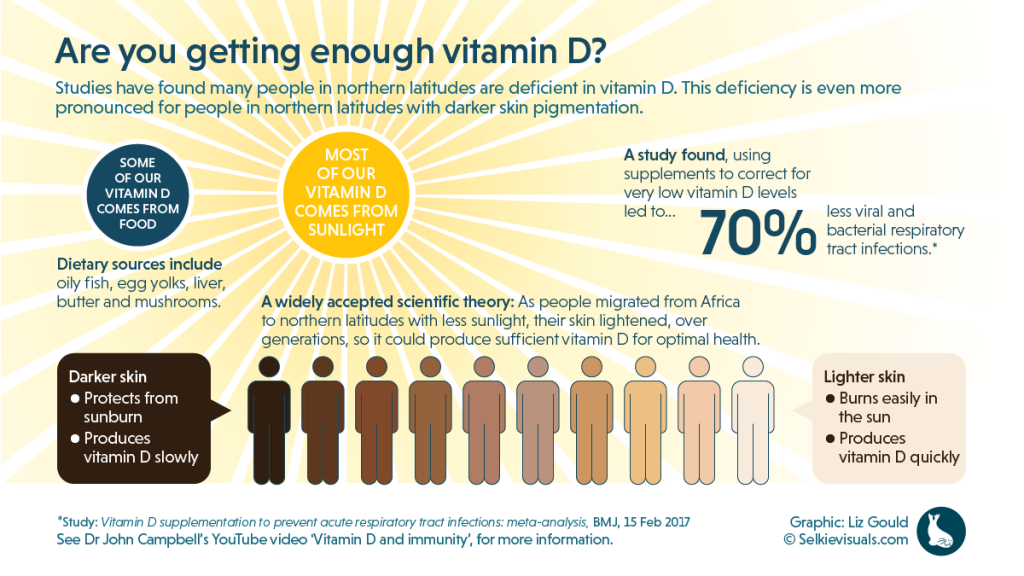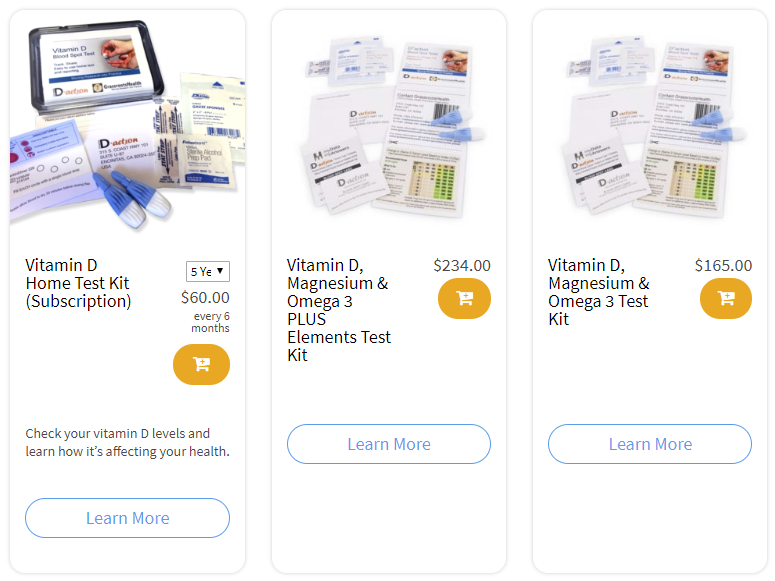Published on July 6, 2020
The role vitamin D plays in the immune system response has received much coverage over the last several months. The issue seems more important now with the current coronavirus pandemic, on top of decades of research showing how vitamin D can be effective in reducing the risk of many types of acute respiratory tract infections. In fact, a systematic review published back in 2017 of vitamin D clinical trials involved over 11,000 participants, and found that those in a subgroup taking daily or weekly vitamin D supplements had a significant 19% reduction in risk of acute respiratory tract infections, but for those with baseline vitamin D levels of 10 ng/ml, the reduction was 70%. (A more detailed review of this publication is coming soon.)
But, has that information prompted you to find out your current vitamin D level? Or, possibly, to start supplementing with vitamin D? Or to take more than you were before? Are you still assuming your vitamin D level is “OK”?
Here is a great graphic to download and share with others to highlight the importance of vitamin D and what to consider when evaluating how you may be getting vitamin D with your lifestyle, diet, and intake.
What can affect how your vitamin D level responds to supplementation?
On occasion we have participants who experience a lower than expected vitamin D level. There are several factors that can influence how an individual responds to supplementation with vitamin D, and many other supplements. In an upcoming newsletter, we will explore possible causes of a low or slow to rise vitamin D response.
To know if you are getting enough, make sure you test today!
Are You Getting Enough Vitamin D to Help Yourself?
We’re in a time of great crisis that could be greatly affected by making sure you and everyone you know has a serum level of at least 40 ng/ml. Help us help you.
Do you know what your vitamin D level is? Be sure to test today to find out, and take steps to keep it within a target of 40-60 ng/ml or 100-150 nmol/L! Give your immune system the nutrients it needs to support a healthy you and protect yourself from unnecessary diseases.
GrassrootsHealth Nutrient Research Institute is preparing to do a Community RCT with the use of our myData-myAnswers nutrient health system that over 15,000 people are already using for their health. We will demonstrate how one can use the Nutrient Research Model established by Dr. Robert Heaney to establish the effect of vitamin D serum levels of at least 40 ng/ml (100 nmol/L) on risk reduction with different ethnicities in the population. Please let us know if you’re interested in helping sponsor this project.
CLICK HERE for updates and new information about the project.
Through GrassrootsHealth Nutrient Research Institute, you can also test your essential elements magnesium, copper, zinc and selenium, toxins such as lead, mercury and cadmium, as well as your omega-3 levels, inflammation levels and thyroid stimulating hormone (TSH) level. Find out your levels today! Log on to the test selection page (click the link below) to get your tests and see for yourself if your levels can be improved.
Make sure you track your results before and after, about every 6 months!
Click Here to Access the Test Page
How can I track my nutrient intake and levels over time?
To help you track your supplement use and nutrient levels, GrassrootsHealth has created the Personal Health Nutrient Decision System called
For each specific supplement, you can track what days you take it, how much, and many other details. This will help you know your true supplemental intake and what patterns of use work for you to reach and maintain optimum nutrient levels. Check it out today!









